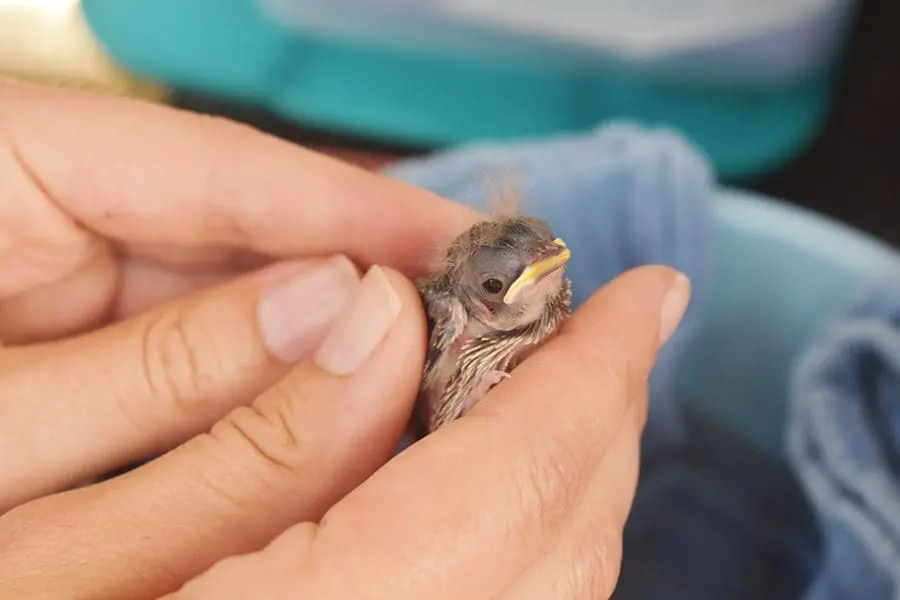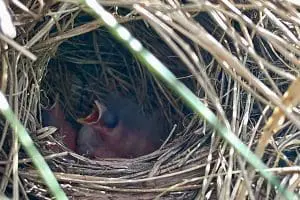

Look at that hairdo! This chick is already in style.
Editor’s note: We’ve started releasing Florida grasshopper sparrows into their natural range!
Back in March, we let you know that we were beginning the process of breeding the critically endangered Florida grasshopper sparrow. We are happy to share that after several weeks of buzzing, nest building and egg laying, our first chicks have hatched!
Once they have matured and been medically cleared, the chicks will be released into the wild to boost the natural population of their species. They will serve as invaluable members of this population which is on a steep decline due to habit loss, disease, limited genetic diversity and nonnative fire ants (which can invade nests and feed on chicks).
First-time mom Ava and mate Gator are the parents of our first-ever Florida grasshopper sparrow chicks. This pair, along with three others, were genetically matched by a team of Florida grasshopper sparrow experts to ensure the healthiest and most diverse population of the species.

The newborn chicks in their nest!
Ava laid four eggs in her nest in a behind-the-scenes area, all four of which are confirmed hatched. The eggs were incubated by Ava for just nine days before hatching. The other Florida grasshopper sparrow pairs are at different stages of the nesting process, but we’re hopeful for more good news soon!
The newly hatched sparrows will stay with their parents for 21 days, after which they will be moved to another behind-the-scenes habitat at the Zoo and be monitored to confirm they are doing well on their own before being released into their natural range. This also gives their parents the opportunity to continue to breed and lay eggs throughout the breeding season, which can go through September.
Our chicks will be given color bands on their leg before they leave, which will allow biologists to identify and track each bird so they can continue to gather valuable information on this critically endangered species.
Florida grasshopper sparrows are only found in a few areas in Central and South Florida and have lost approximately 85% of their natural habitat to agriculture. As of 2021, just over 100 members of their species were detected in their natural range.
Brevard Zoo is an independent, not-for-profit organization that receives no recurring government funding for our operating costs. Your generous support enables us to continue to serve our community and continue our vital animal wellness, education and conservation programs.